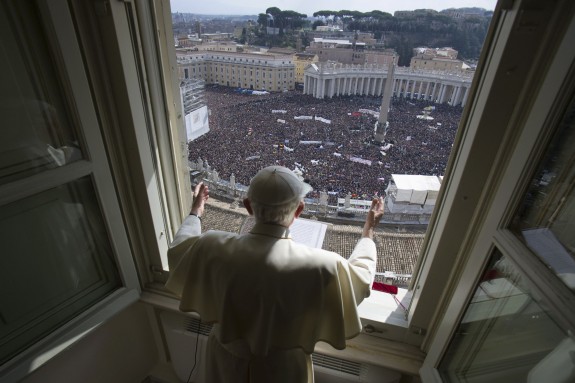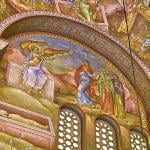In his last week as pontiff, Pope Benedict XVI issued new rules for conclaves, including a clause that allows the College of Cardinals to move up the date for the beginning of the conclave to elect his successor.
However, the cardinals cannot set the date until after the pope leaves office Feb. 28.
Pope Benedict also defined the exact penalty — automatic excommunication — that would be incurred by any noncardinal assisting the College of Cardinals who failed to maintain absolute secrecy about the conclave proceedings.
The pope laid out the new rules in an apostolic letter issued “motu proprio” (on his own initiative) Feb. 22, the feast of the Chair of St. Peter. The Vatican released the document Feb. 25.
The changes affect the rules established in Blessed John Paul II’s apostolic constitution governing the election of popes, “Universi Dominici Gregis.”
Under the current rules, which remain in effect, upon the vacancy of the papacy, cardinals in Rome “must wait 15 full days for those who are absent” before they can enter into a conclave and begin the process of electing a new pope.
However, Pope Benedict inserted an additional provision that grants the College of Cardinals “the faculty to move up the start of the conclave if all the cardinal-electors are present,” as well as giving them the ability “to delay, if there are serious reasons, the beginning of the election for a few more days.”
Photo: CNS via Reuters
















